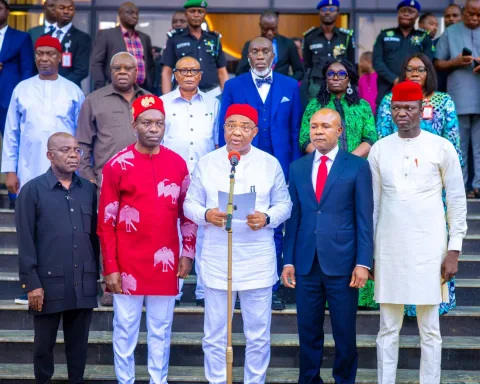President Bola Tinubu’s push for the securitization of the N7.388 trillion debit balance within the Consolidated Revenue Fund (CRF) has ignited a fiery debate in the legislative arena and among Nigerians.
While addressing the House of Representatives, Tinubu defended the move, citing pressing financial imperatives and the need to abide by Section 38 of the Central Bank of Nigeria’s Act 2007.
Join our WhatsApp ChannelIn a letter sent to the National Assembly read by Speaker of the House of Representatives, Hon. Tajudeen Abbas, Tinubu said: “This action is essential given the current status of the Consolidated Revenue Fund.”
However, this strategy is flagging violations of statutory limits set by the CBN Act.
The Federal Government’s borrowing of N23.7 trillion exceeds the prescribed threshold of 5% of the previous year’s revenue, sparking concerns about fiscal responsibility.
Despite Tinubu’s assurance of benefits, including reduced debt servicing costs and improved debt transparency, dissenting voices persist.
Experts have warned against the legal and economic implications of such a plan, citing fears of macroeconomic distortions and heightened inflation risks.
Moreover, legislative revisions granting the Federal Government expanded access to the Ways and Means loan from 5% to 15% have fueled apprehensions regarding fiscal prudence and adherence to legal frameworks.
As discussions intensify, the securitization proposal stands as a polarizing force, symbolizing the collision between fiscal urgency and legal boundaries in Nigeria’s financial landscape.
Emmanuel Ochayi is a journalist. He is a graduate of the University of Lagos, School of first choice and the nations pride. Emmanuel is keen on exploring writing angles in different areas, including Business, climate change, politics, Education, and others.


















Follow Us